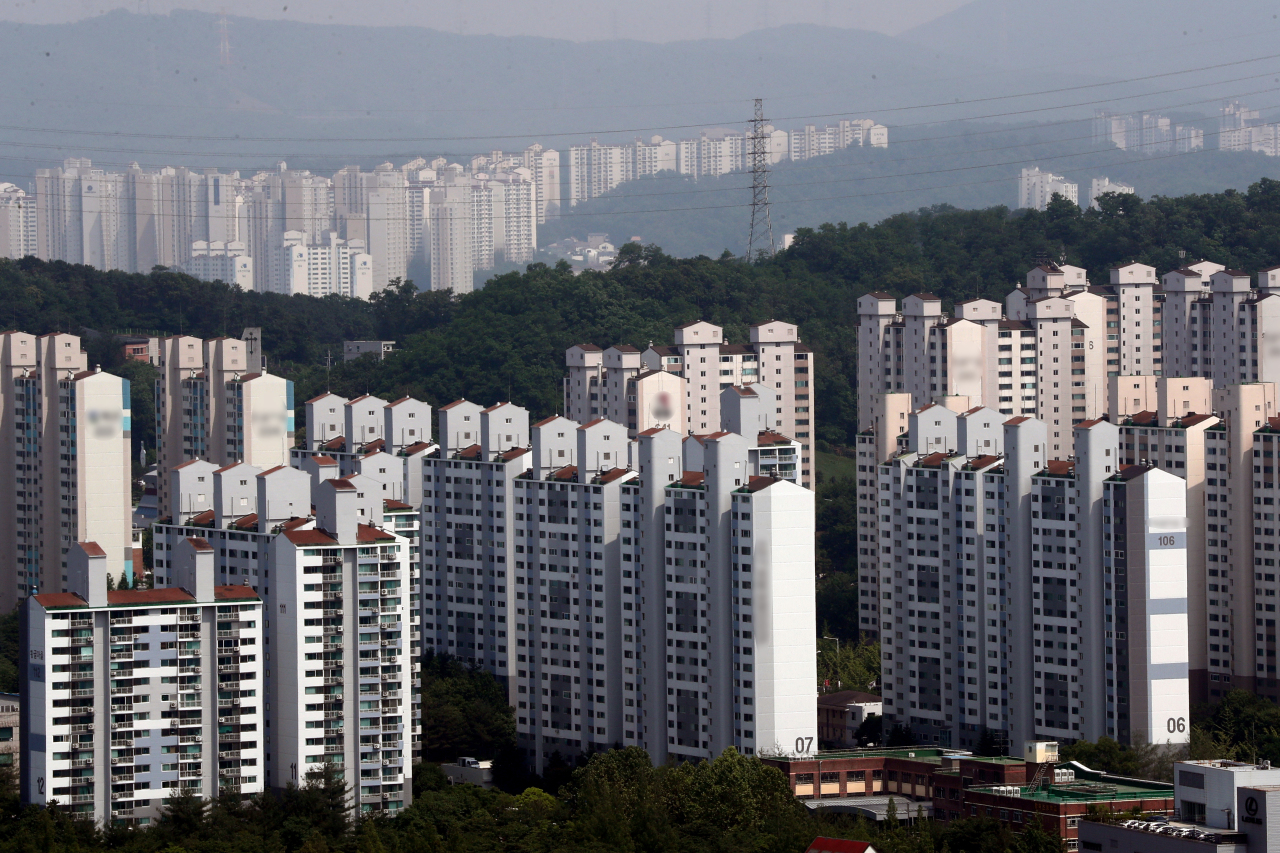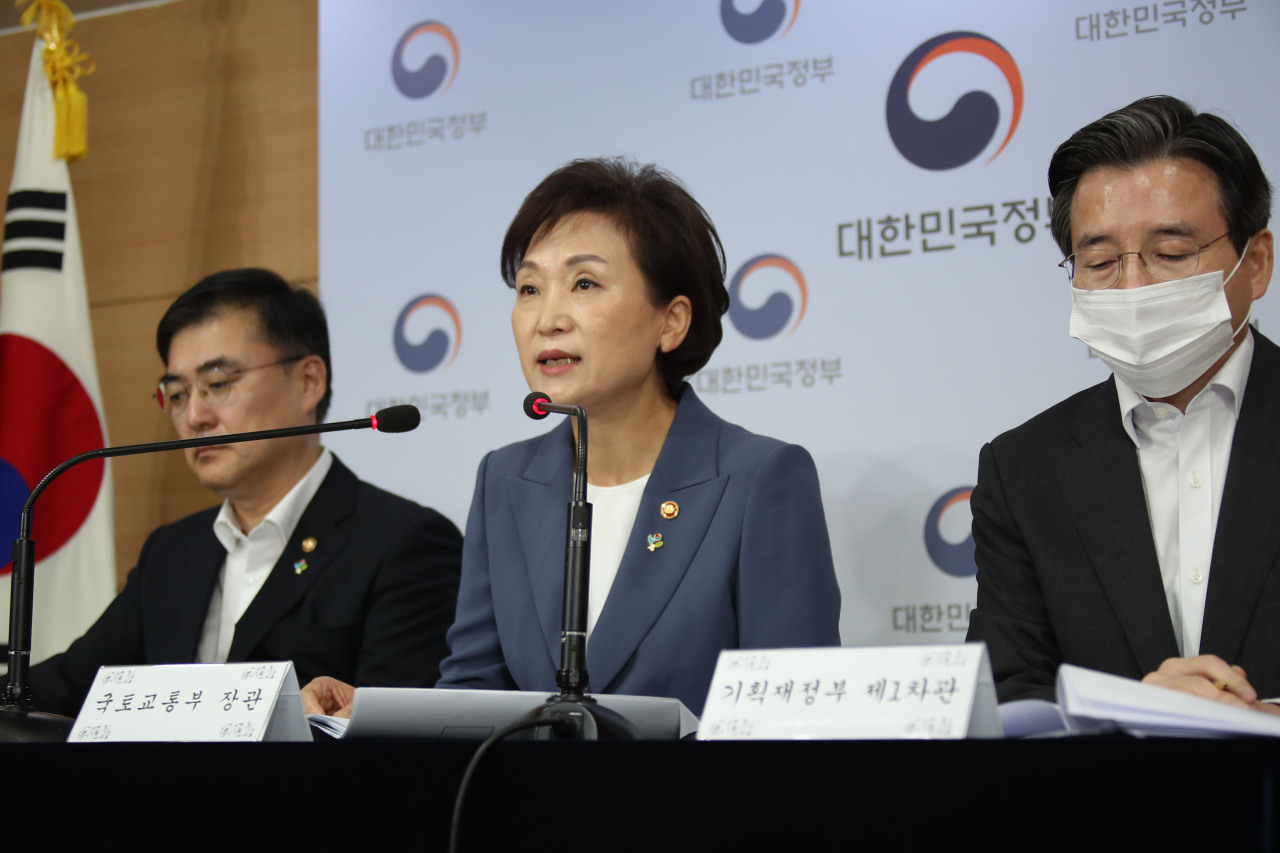S. Korea rolls out stricter regulations to cool heated housing market
Tighter mortgage rules, expansion of regulated areas and measures to halt speculative buying to take effect
By Jung Min-kyungPublished : June 17, 2020 - 17:52

South Korea on Wednesday unveiled stricter regulations to curb rising housing prices, including tighter loan rules and an expanded range of areas that are subject to special restrictions.
Through the Moon Jae-in administration’s 21st set of housing price regulations, the government expanded its special regulations and monitoring zone to most areas west of Seoul and to certain other key cities as well, it said in a briefing of related ministries.
Cities adjacent to Seoul including Incheon, Ansan, Osan and Pyeongtaek were added to the government’s list of “modification target areas,” where the surge in housing prices is considered double the inflation rate, in a nutshell. Key cities such as Daejeon and Cheongju were added to the list as well. A total of 69 areas were listed, compared with the previous 44.
In such areas, loan-to-value ratios of 50 percent will be adopted for apartments priced below 900 million won ($740,170) and 30 percent for those that cost more. The debt-to-income ratio will be limited to 50 percent, and multiple property owners will have to pay heavier capital gains taxes.
Several cities in Gyeonggi Province, such as Suwon and Anyang, were added to the “overheated speculative zone” list, expanding the number of areas so designated from 31 to 48. Banks will be banned from extending mortgages for apartments worth more than 1.5 billion won. Additionally, an LTV ratio of 20 percent -- instead of 40 percent -- will be applied to houses worth more than 900 million won.
Banks will also be prohibited from extending loans to housing rental businesses, and those who seek to borrow money for the purpose of investing in housing in regulated areas will be required to move into the purchased properties within six months.
Additionally, the Seoul Metropolitan Government later announced that to purchase housing properties measuring a net 18 square meters or more in areas such as Samseong, Cheongdam, Daechi and Jamsil, prospective buyers must seek approval from the respective local district offices. They must agree to live in the new dwelling for at least two years and are prohibited from selling it or offering it for rent during that time. The rules are slated to take effect Tuesday.

The named areas have been deemed “beneficiaries” of state-run infrastructure development projects -- some already underway and others still in the planning stages -- that have contributed to massive buying sprees.
The aim of these measures is to halt the rampant practice of speculative buying, also called “gap investment,” made possible by the country’s unique jeonse lease system.
The widely popular method -- where investors take advantage of the lump-sum deposit system -- has been aggravating the housing price bubble. The jeonse system allows investors to use the gap between the down payment and the jeonse deposit that the buyer will receive from a tenant.
According to the Korea Appraisal Board, the average apartment price in Seoul as of the second week of June posted a 0.02 percentage point rise on-week. The upward trend was more conspicuous in smaller cities in Gyeonggi Province -- such as Osan, Ansan and Gunpo -- where average housing prices have inched up more than 5 percent over the past three months.
“To prevent market liquidity catering to demand for excessive investment, we have prepared measures that can resolve uncertainties and factors that can overheat the market,” Land Minister Kim Hyun-mee said in a briefing.
By Jung Min-kyung (mkjung@heraldcorp.com)









![[Today’s K-pop] BTS pop-up event to come to Seoul](http://res.heraldm.com/phpwas/restmb_idxmake.php?idx=644&simg=/content/image/2024/04/17/20240417050734_0.jpg&u=)

![[Graphic News] More Koreans say they plan long-distance trips this year](http://res.heraldm.com/phpwas/restmb_idxmake.php?idx=644&simg=/content/image/2024/04/17/20240417050828_0.gif&u=)






![[KH Explains] Hyundai's full hybrid edge to pay off amid slow transition to pure EVs](http://res.heraldm.com/phpwas/restmb_idxmake.php?idx=652&simg=/content/image/2024/04/18/20240418050645_0.jpg&u=20240419100350)

